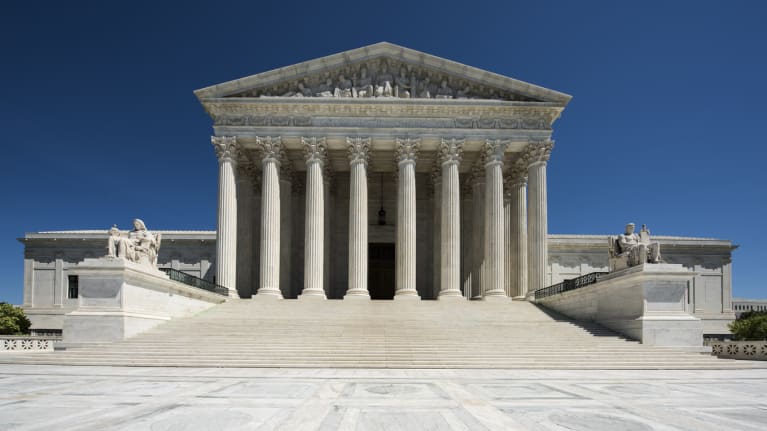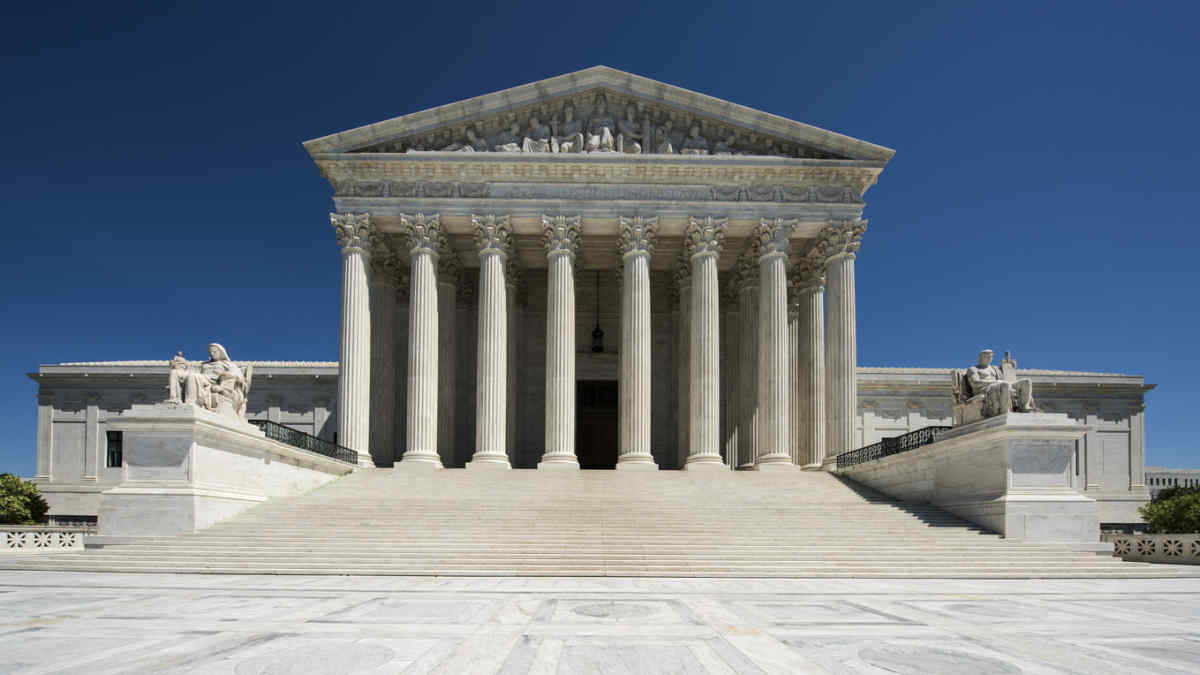

?With the advent of fall comes a new term for the U.S. Supreme Court, which is likely to hear a number of cases of interest to employers across the country. The 2022-23 term officially starts Oct. 3.
Rob Duston, an attorney with Saul Ewing Arnstein & Lehr in Washington, D.C., predicted we’ll see the court reject some major precedents this fall. “They are rolling back a number of long-standing provisions and principles they have been skeptical of for a long time,” he said. “Precedent doesn’t mean as much to this court.”
Key topics in upcoming cases include LGBTQ rights, religious freedoms, race and affirmative action, overtime pay exemptions, and how much latitude companies can have regarding jurisdiction for their cases. Here’s a rundown of important cases that the U.S. Supreme Court is likely to take on this fall.
LGBTQ Rights and Religious Freedoms
In 303 Creative v. Elenis, the court will consider whether an artist or business can refuse to provide goods or services to certain groups of people. The lawsuit challenges the Colorado Anti-Discrimination Act, which prohibits places of public accommodation from denying service to someone based on disability, race, religion, color, sex, sexual orientation, marital status, national origin or ancestry. It’s also unlawful to announce your intention to do so.
In this case, a Colorado graphic designer sued because she wants to expand her graphic design business to create wedding websites, but because of her Christian beliefs, she does not want to design wedding websites for same-sex couples. She wants to reflect this policy on her own website.
The U.S. Supreme Court ruled in a similar case in 2018 called Masterpiece Cakeshop v. Colorado Civil Rights Commission, which involved a Colorado baker who didn’t want to bake cakes for same-sex weddings. At that time, the court ruled narrowly and did not answer the question of whether a person has a free-speech right to stay silent or not create something.
The new case will tackle that question directly. While it addresses public accommodations, such as retail, “it’s not a stretch of the imagination to see how that kind of decision would trickle down to the workplace,” said Zachary Busey, an attorney with Baker Donelson in Memphis, Tenn.
“Employers need to be thinking through if they have workers who are claiming religious exemptions to particular responsibilities that they have in their job,” said Elizabeth Wylie, an attorney with Snell & Wilmer in Denver.
“I think they’re going to uphold the state law, but it’s going to be close,” Duston said.
Affirmative Action
Two cases, Students for Fair Admissions v. President and Fellows of Harvard and Students for Fair Admissions v. University of North Carolina, will be heard on Oct. 31. Both will address whether colleges can use race as one of many factors in student admissions.
In the first case, a nonprofit group alleged that Harvard violates the federal Civil Rights Act by imposing a racial quota that keeps the number of Asian American students artificially low. In the second case, the same nonprofit group claimed that the University of North Carolina unfairly gives preference to Black, Hispanic and Native American applicants to the detriment of white and Asian American applicants.
Harvard and the University of North Carlina argued that their race-conscious admissions policies comply with federal law, which allows race to be one of many factors in college admissions, so long as that policy serves a compelling governmental interest, such as the educational benefits that arise from diversity among students and faculty.
“A lot of folks think this may be the term, finally, that the majority gets rid of race or diversity or any protected class from being a ‘plus factor’ in admissions decisions,” Duston said. If that’s the case, “it’s going to have a ripple effect [on employment decisions]. There’s going to be bleed-over into how far can you go into improving the diversity of your business before it goes into discrimination? The pendulum may be swinging the other way.”
In the future, diversity initiatives and affirmative action in employment will be given higher scrutiny, Duston predicted.
Overtime Exemptions
The court will hear Helix Energy Solutions Group v. Hewitt on Oct. 12. The main question is whether a supervisor making over $200,000 each year is entitled to overtime pay under the federal Fair Labor Standards Act (FLSA). Helix Energy Solutions Group, an offshore oil and gas company based in Houston, claimed its former employee Michael Hewitt was exempt from overtime pay because he was a highly paid executive, earning more than $200,000 per year. He claimed he should get overtime pay because Helix calculated his pay by using a daily rate, and the 5th U.S. Circuit Court of Appeals agreed.
“This case will have an impact on employers that claim the highly compensated exemption for employees paid on an hourly, daily or shift basis,” said Patrick Dalin, an attorney with Fisher Phillips in Philadelphia. “If the Supreme Court agrees with the 5th Circuit, those employers may face significant overtime liability.”
“If the Supreme Court were to rule in Mr. Hewitt’s favor based on his interpretation of the law, for employers to take advantage of the highly compensated employee exemption, [employers] would have to ensure that such individuals were guaranteed and actually paid at least $684 per week, and that a reasonable relationship existed between the guaranteed amount and the amount actually earned,” said Richard Kidd and Christine Lacku, attorneys with Ropes & Gray in New York City.
“This will be a really interesting issue for the Supreme Court to take up, especially given their conservative bent right now,” Wylie said. “There’s lots of case law that says salary alone is not sufficient to establish an exemption to overtime requirements, and this case pointedly puts that to test.”
Jurisdiction Questions
The court will hear Mallory v. Norfolk Southern Railway on Nov. 8. The central question there is whether the U.S. Constitution prohibits states from requiring a corporation to consent to personal jurisdiction as a condition of doing business within the state. Such consent-by-registration statutes previously were common, but almost all have been revoked or interpreted to clash with Supreme Court decisions.
This case “will inform, in some ways, an employer that’s confronted with a personal jurisdiction question in a class action,” Busey said. “That’s becoming more and more frequent, given that remote work is becoming more frequent. It’s no longer the case that employers can say they only have employees in two states or three states.”
If the court rules in favor of the plaintiff, employers could face lawsuits in states where their employees didn’t work.
Federal Agency Power
The court will hear Sackett v. Environmental Protection Agency on Oct. 3 and Securities Exchange Commission v. Cochran on Nov. 7. Both cases seek to clarify how to balance the power between the federal agencies and the courts.
“This makeup of the Supreme Court, it has shown recently that it is not fond of the administrative executive world operating as a quasi-judiciary,” Busey said. While these two cases aren’t directly about employment law, “it’s easy to see how that might become applicable to the U.S. Department of Labor, or the National Labor Relations Board, or the U.S. Equal Employment Opportunity Commission,” he added.
